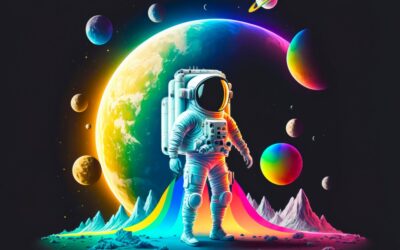Kääbntäjä: The Ultimate Guide to Translation Tools in 2025

The world is more connected than ever, making translation tools essential for businesses and individuals alike. Kääbntäjä, or translation software, has advanced rapidly, integrating artificial intelligence (AI) and neural networks for improved accuracy and fluency.
What is Kääbntäjä?
Kääbntäjä refers to software applications that automatically translate text, audio, and even images between different languages. These tools have evolved from basic word-for-word translation to context-aware AI-driven solutions.
How Translation Tools Work
Translation tools analyze the input language, break it down into structures, and then reconstruct it in the target language. Modern Kääbntäjä tools leverage:
- AI and Machine Learning: Algorithms learn from large text datasets.
- Neural Networks: Simulating human-like translation.
- Natural Language Processing (NLP): Understanding nuances and context.
Key Features of Modern Kääbntäjä Software
- Real-Time Translation: Instantly translates text and speech.
- Context Recognition: Understands phrases beyond word-for-word meanings.
- Offline Mode: Works without internet access.
- Multi-Device Synchronization: Access translations across different devices.
AI and Machine Learning in Translation
AI-driven translation tools learn from human translations to improve accuracy over time. Companies like Google and DeepL have developed powerful models that offer near-human translation quality.
Best Kääbntäjä Tools in 2025
Free vs. Paid Translation Tools
- Free Tools: Google Translate, Microsoft Translator
- Paid Tools: DeepL Pro, SYSTRAN, Smartling
Top Translation Software Reviewed
- DeepL: Best for accuracy.
- Google Translate: Best for accessibility.
- Smartling: Best for business localization.
- SYSTRAN: Best for enterprise translation.
Benefits of Using Kääbntäjä Software
Accuracy Improvements
AI-powered translators offer higher accuracy than traditional tools, reducing errors and improving comprehension.
Time and Cost Efficiency
Businesses save time and money by automating translations instead of hiring human translators for simple tasks.
Multilingual Capabilities
With support for hundreds of languages, Kääbntäjä tools make communication easier for global users.
Challenges in Machine Translation
Common Translation Errors
- Incorrect grammar.
- Misinterpretation of slang and idioms.
- Lack of contextual understanding.
Context and Cultural Sensitivity
Automated translation tools struggle with cultural nuances, sometimes leading to misunderstandings.
Future of Kääbntäjä and AI Translation
The future of translation includes:
- Greater AI Integration: More human-like language processing.
- Voice and Video Translations: Instant multilingual conversations.
- Improved Cultural Adaptation: AI understanding regional dialects and nuances.
FAQs
1. What is the best Kääbntäjä software in 2025?
DeepL and Google Translate are among the best for accuracy and usability.
2. Can AI completely replace human translators?
Not yet. AI is improving but still lacks full cultural and contextual understanding.
3. Are free translation tools reliable?
Yes, for casual use. However, businesses may need premium software for accuracy.
4. How do I improve machine translation accuracy?
Use context-aware software, review translations, and combine AI with human proofreading.
5. Is offline translation possible?
Yes, many tools like Google Translate offer offline translation capabilities.
6. What’s next for Kääbntäjä technology?
Advancements in AI, real-time translation, and cultural adaptation will shape the future.
Conclusion
Kääbntäjä tools are revolutionizing communication, making language barriers easier to overcome. Whether for personal use or business needs, AI-driven translation software offers efficiency, accuracy, and cost-effectiveness.
















